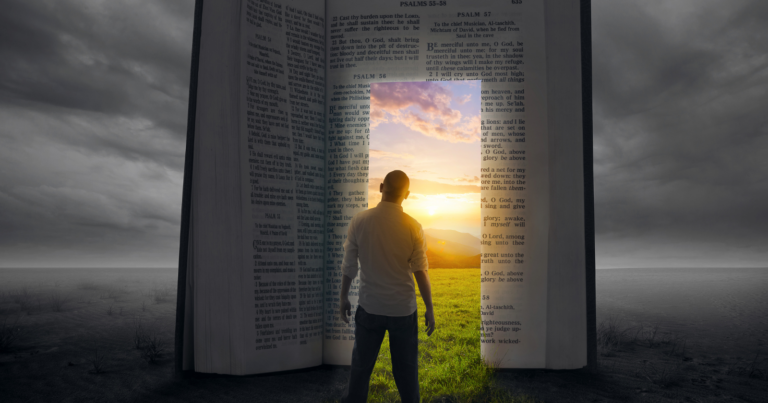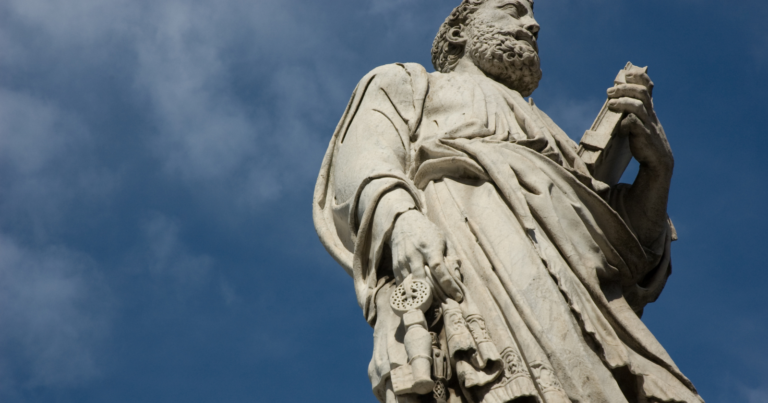“The latter glory of this house shall be greater than the former, says the Lord of hosts. And in this place I will give peace, declares the Lord of hosts.”
Haggai 2:9
Amidst our busy lives filled with personal goals and distractions, the Book of Haggai delivers a powerful message.
This short yet impactful text challenges us to examine our priorities and to focus on rebuilding essential parts of our lives that we’ve neglected.
Haggai, speaking during a time of reconstruction and change, calls us to action – to invest in our community and spiritual foundations. His words from centuries ago still resonate, urging us to find balance and purpose in our pursuits.
Let’s explore the enduring relevance of Haggai’s prophecies and how they can inspire us to live a life aligned with God’s will.
Overview of the Book of Haggai
The Book of Haggai, part of the Twelve Minor Prophets, holds a unique place in Hebrew Scripture.
Unlike the longer writings of the Major Prophets — Isaiah, Jeremiah, Ezekiel, and Daniel — Haggai’s text is concise, yet its impact is profound.
Positioned as the tenth prophet, Haggai’s teachings come during a pivotal time in Jewish history: the post-exilic period.
After the Babylonian Exile, a significant event that saw the Jewish people deported and the Jerusalem Temple destroyed, King Cyrus of Persia’s decree in 538 BC enabled their return to Jerusalem.
This marked the beginning of a new era, focusing on restoring their spiritual and communal identity through the rebuilding of the Second Temple, initiated in 520 BC under King Darius.
Haggai’s core message
Haggai delivers a straightforward yet impactful message:
Rebuild the Temple and renew your faith.
As the Jewish people returned from Babylonian Captivity to Jerusalem, Haggai emphasized the urgency of focusing their efforts on reconstructing the Temple, a key symbol of their spiritual life and community.
His call goes beyond the physical act of building; it’s about reviving commitment to God and strengthening communal bonds.
Haggai asks the people to reflect on their priorities, challenging them to consider if they have been too focused on personal gains at the expense of their spiritual and communal duties.
Through his teachings, we learn the value of putting first what truly matters – our shared beliefs and collective well-being, showing us that real success is built on a foundation of faith and unity.
Rebuilding amidst ruin
The context in which Haggai delivered his prophecies was one of significant hardship and discouragement for the people of Israel.
They had returned from Babylonian exile to find Jerusalem in ruins and the temple—the very heart of their worship and national identity—destroyed.
Haggai’s call to rebuild the temple was not just about reconstructing a physical building but also about restoring faith, hope, and community among the people.
Let’s break down the depth of Haggai’s encouragement and its implications for us today:
- The urgency of Haggai’s message: Prioritize the spiritual.
- The challenge: Overcoming desolation and discouragement.
- The promise: God’s presence and blessings in the midst of rebuilding.
Just as the Israelites were encouraged to rebuild the temple amidst their ruins, we are invited to find hope and take action toward rebuilding the broken areas of our lives.
Exploring Haggai’s themes
1) Priority of worship
First of all, Haggai challenges us to consider our priorities, emphasizing the importance of placing worship and our relationship with God above all else.
This theme prompts a reflection on how we prioritize our time, resources, and energy in today’s fast-paced world.
How so?
Well, the prophet confronts the people of Israel, who had returned to their homeland but had prioritized their personal comfort over the reconstruction of the Jerusalem Temple.
“Consider your ways,” he urges, highlighting how the people prioritized their own homes over the temple’s restoration.
This scenario reveals a raw truth about human nature:
Our tendency to focus on immediate, tangible needs while neglecting our spiritual duties and commitments.
Are we putting our personal comfort and desires ahead of our spiritual growth and community?
Haggai challenges us to place worship at the forefront of our lives, suggesting that such devotion brings deeper fulfillment than any material achievement can offer.
2) Divine assurance amidst effort
Now, let’s face it, embarking on any significant effort, especially when it comes to rebuilding from ruins, can feel daunting.
But here’s where Haggai’s message brings a beam of hope.
Amidst the rubble and the effort to rebuild the temple, he assures the people of God’s steadfast presence.
“Yet now be strong, O Zerubbabel, saith the LORD; and be strong, O Joshua, son of Josedech, the high priest; and be strong, all ye people of the land, saith the LORD, and work: for I am with you, saith the LORD of hosts.”
Haggai 2:4
This quote encapsulates the heartening assurance from God amidst the daunting task of temple rebuilding.
It translates simply to: “Even when the task seems insurmountable, remember, you are not alone. I am with you, offering strength and support.”
This reassurance is pivotal, emphasizing that while human effort is necessary, it is God’s presence that ultimately ensures success.
3) Greater glory ahead
Imagine standing before the ruins of what once was your greatest achievement, feeling the weight of loss and uncertainty.
This is where the people of Israel found themselves, tasked with rebuilding the Temple, a shadow of its former glory.
Yet, Haggai’s message rings with hope: the future glory of this Temple will surpass its past (Haggai 2:9).
It’s a profound reminder that our efforts in the present, no matter how humble, are paving the way for a future brighter than we can imagine.
Here’s the thing:
The promise of greater glory is not just about buildings or material achievements. It’s about the growth and spiritual depth we gain through perseverance.
Perhaps not surprisingly, this vision of hope encourages us to keep building, keep striving, for the best is yet to come.
4) The impact of obedience
Have you ever wondered what ripples your actions might create?
Haggai presents a compelling case for the transformative power of obedience.
When the people listened and began to rebuild the Temple, they activated a chain reaction of blessings not only for themselves but for their entire community.
This obedience was a tangible sign of their trust in God’s promises, a trust that was rewarded with prosperity and protection.
As we reflect on this message, it’s worth considering our own lives.
- What “temples” are we being called to rebuild?
- How might our obedience in small acts of faith usher in waves of change and blessings?
In essence, Haggai challenges us to see obedience not as a burden but as a pathway to a more fulfilling and impactful life.
Seeking divine guidance?
“Consider now from this day and upward, from before a stone was laid upon a stone in the temple of the LORD.”
Haggai 2:15
In moments of uncertainty or when faced with daunting tasks, seeking divine guidance isn’t just a step — it’s a necessity.
Haggai’s narrative offers a vivid illustration of this truth.
Through specific passages, we see the prophet channeling messages from God, guiding the people of Israel in their efforts to rebuild the Temple.
For instance, Haggai 2:4 says, “Be strong, all you people of the land, declares the LORD, and work. For I am with you, declares the LORD Almighty.”
Here, the promise of God’s presence provides not just comfort but a solid foundation for action. It assures us that in our pursuit of meaningful goals, especially those aligned with divine will, we are not alone.
The message of Haggai encapsulates the essence of seeking and following divine guidance.
It’s a process that involves reflection, realignment, and the reassurance that God’s support is ever-present.
For anyone standing at the crossroads, contemplating the path ahead, these passages remind us that guidance is always available, promising a partnership that can lead to remarkable outcomes.
Final words: Applying Haggai today
As you can see, the timeless messages of the Book of Prophet Haggai extend far beyond the historical context of the Israelites and their temple.
They resonate with us today, challenging us to consider our priorities, heed the call to action, and embrace the promise of hope and restoration.
Here’s how we can bring Haggai’s timeless wisdom into our daily lives:
- Reevaluate your priorities: Haggai challenges us to consider if we’ve placed our spiritual well-being on the backburner. Reflect on your values and ensure they’re mirrored in your daily actions.
- Embrace collective action: The rebuilding of the temple symbolizes the power of working together towards a common purpose. Identify ways you can join or initiate community efforts to make a tangible difference.
- Find hope in adversity: Haggai reminds us that even in the face of challenges, hope and restoration are within reach. Trust in the promise of better days, supported by faith and perseverance.
By integrating these principles into our lives, we honor not just the legacy of Haggai but also pave the way for a future where our actions are deeply rooted in purpose, unity, and optimism.













